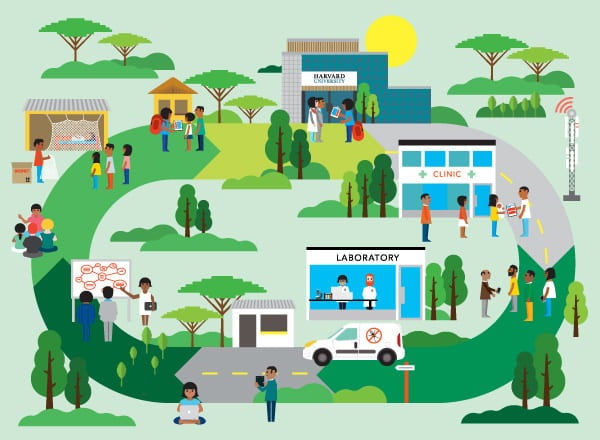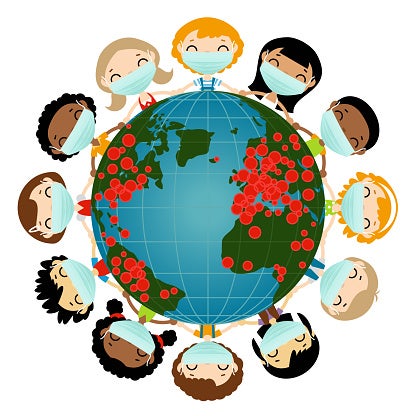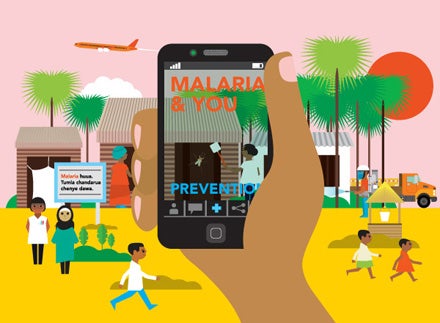Defeating Malaria
This initiative is a Harvard University project aiming to produce, transmit, and translate knowledge to support the control and ultimate eradication of malaria.
Boston, MA, USA
Join Us!
“Science of Defeating Malaria” – A Leadership Course
The “Science of Defeating Malaria” is a nomination-based leadership development course. The curriculum content, pedagogy, and selection of participants are overseen by a Faculty Planning Committee, comprised of representatives of the academic consortium. Each year, Harvard’s Defeating Malaria Initiative supports this leadership course with African university partners at the University of Cheikh Anta Diop at Dakar (UCAD) in Senegal, the Rwandan Biomedical Centre in Rwanda, the Institute for Genomics and Global Health at Redeemer’s University in Nigeria, and the University of Health and Allied Sciences (UHAS) in Ghana. The next edition of the leadership development course will be held from June 7-13, 2026, in Abuja, Nigeria. Visit the course website for more information.
Free Online Course from Harvard University: MalariaX
“MalariaX: Defeating Malaria from the Genes to the Globe” explores cutting-edge science and technology and examines policies needed to control and eliminate malaria. Faculty instructors guide learners in analyzing real-world data, demonstrating effective applications, and focusing on the development and implementation of evidence-based intervention strategies for national and local malaria eradication efforts. Over 57K global learners have accessed this free course with transcripts in English, French, Portuguese, and Spanish. Enroll today.
Harvard has both a responsibility and an opportunity to make great advances in the field of malaria
Harvard is a global university, dedicated to creating new knowledge and educating leaders. Across the University, Harvard faculty, students, and collaborators are working to advance biomedical research and innovation, and improve our understanding of the global impact of malaria through Harvard’s Defeating Malaria From the Genes to the Globe Initiative.

Education and Leadership Development
Preparing and inspiring the next generation of scholars and leaders is an essential component of achieving a malaria-free world.

Science and Its Translation
Current tools to combat malaria have yielded tremendous progress, but more remains to be done to meet the aspiration of eradication.

Strategic Decision Making
To make sound public health decisions, clinical evidence is essential. We must synthesize a range of information from diverse sources.

Organizational and Operational Performance
Access to health technologies continues to be a key obstacle for endemic countries in the fight against malaria.

Rethinking Malaria/COVID-19
Harvard University’s Defeating Malaria: From the Genes to the Globe Initiative leads a global engagement on “Rethinking Malaria in the Context of COVID–19.”

Communications and Advocacy
Communication and marketing strategies have played crucial roles in achieving major progress against malaria, with the tangible symbol of the insecticide-treated bed net providing a powerful marketing